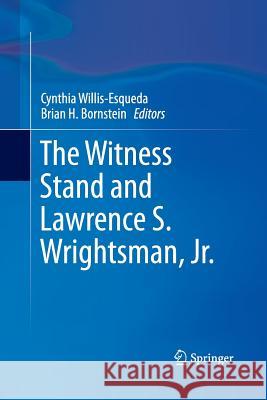The Witness Stand and Lawrence S. Wrightsman, Jr. » książka
topmenu
The Witness Stand and Lawrence S. Wrightsman, Jr.
ISBN-13: 9781493943968 / Angielski / Miękka / 2016 / 177 str.
Kategorie:
Kategorie BISAC:
Wydawca:
Springer
Język:
Angielski
ISBN-13:
9781493943968
Rok wydania:
2016
Wydanie:
Softcover Repri
Ilość stron:
177
Waga:
0.27 kg
Wymiary:
23.39 x 15.6 x 0.99
Oprawa:
Miękka
Wolumenów:
01











